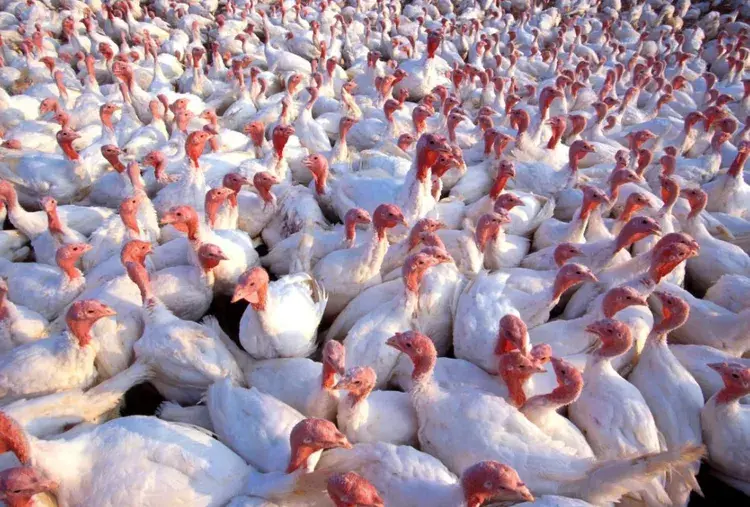Scientists confirmed a backyard flock of poultry in northwestern Tennessee was infected with highly...
Over 400,000 Turkeys Killed in Response to SD’s Bird Flu Outbreak

The number of turkeys killed at South Dakota farms in response to recent detections of avian influenza has risen to 419,650, continuing the state’s status as the national epicenter of this season’s outbreak.
The numbers come from the USDA’s Animal and Plant Health Inspection Service, which reports bird flu detections in eight commercial South Dakota flocks and one backyard flock in the state during the last 30 days.
Meanwhile, South Dakota State Veterinarian Beth Thompson said blue-winged teal, a species of duck, has been identified as the carrier of this season’s virus. John Cooper, a former U.S. Fish and Wildlife Service agent and former state Game, Fish and Parks secretary, said it makes sense that the state would find itself combating bird flu early this year if teal are carrying it. “Teal are traditionally our first migrators,” Cooper said.
Detections this early in the fall season are troubling, according to Thompson. The peak avian influenza seasons typically happen later, during the fall and spring migration of wild birds, which can carry the virus without becoming sick.
In a statement to South Dakota Searchlight, the state department of health said, “Bird flu has the potential to be transmitted to humans from wild birds” but emphasized the risk to people remains low.
The department pointed to federal guidance from the Centers for Disease Control and Prevention, which offers steps for hunters to reduce risks:
- Gut and de-feather game birds in the field rather than at home and practice good hygiene to prevent disease spread.
- Use dedicated tools for cleaning game, do not use the same tools around poultry, and wash and disinfect all tools and work surfaces afterward.
- Wear gloves, a mask, and eye protection when handling game birds.
- Throw away the gloves and facemask afterward and wash hands with soap and water.
- Cook meat to an internal temperature of at least 165°F.
Commercial turkey products remain safe to eat, thanks to existing food safety protocols in the industry, according to Thompson.
The bird flu depopulation process is federally mandated and involves killing all birds at affected sites to prevent the virus from spreading to nearby farms. She said the process is carried out with assistance from federal and state officials who oversee the work, with the federal government offering compensation for losses through indemnity payments. Those payments have totaled more than $1 billion nationally since 2020, according to an analysis by CBS News, including about $130 million in South Dakota.
EDITOR’S TAKE:
And just when we thought it was under control – IT’S BACK! Yes, bird flu is back and is having a significant impact in states where wild birds regularly roost or seek shelter. The government is doing everything possible to keep it from spreading, especially to other species, including humans. Yes, the risk to humans may be low, but be sure to follow the advice of experts, especially if you hunt wild game.
In the meantime, make sure you continue to offer the best service available. If you have a mobile unit, contact the farmers/ranchers in your area and offer them routine maintenance contracts to help them better manage their time, especially during harvest.








